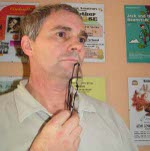The English Language is Broken. (Another part of a never-ending series.)
Consider the word “do”. Amongst other things, this is used to mean a party, formal dinner, or other event. (“We were invited to a posh do at the Dorchester.”) Now assume that you have a busy social life and that you have been invited to a do on Thursday and another on Saturday night. You now have two of them to write about. How do you spell the plural of do?
You ought just to be able to stick an ess on the end of it, but for old-time computer buffs like me, dos looks like a “disc operating system” and is pronounced “doss”.
So how about treating it like potato, and adding an ee and an ess? That turns it into does, which is either the third person form of the verb “to do” (as in “he does nothing”), or it’s multiple female rabbits (or deer).
Some people throw in an apostrophe, rendering those multiple events as “do’s”. That goes against convention by inserting an apostrophe into a plural (which is only normal amongst greengrocers). Furthermore, for utilitarians like me, that apostrophe has to stand for something: for the omission of specific letters, and the most likely candidate is a missing ee, so we’re back to “does”.
The basic problem here is the pronunciation. We don’t say “do” with the oh sound that terminates potato, we say it with the oo of boo. We have no problem with boos (although that makes us sound very unpopular), and, by sound, the plural of “do” should be “doos”. (Incidentally, I once worked with a lady from the Isle of Wight who pronounced the third person form of the verb “to do” as “doos”. She even managed to get the words “haves” and “doos” into a single sentence: “She haves the day off sick and then doos overtime.”)
This, I am convinced, is a case where there is no right answer (other than the impossible dream of respelling the whole of the English lexicon phonetically).
 You can have a rum do and you can have a posh do. You might even have rum at a posh do.
You can have a rum do and you can have a posh do. You might even have rum at a posh do.









